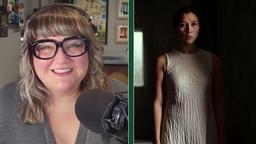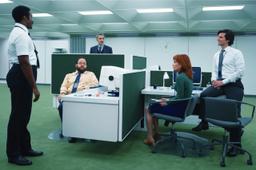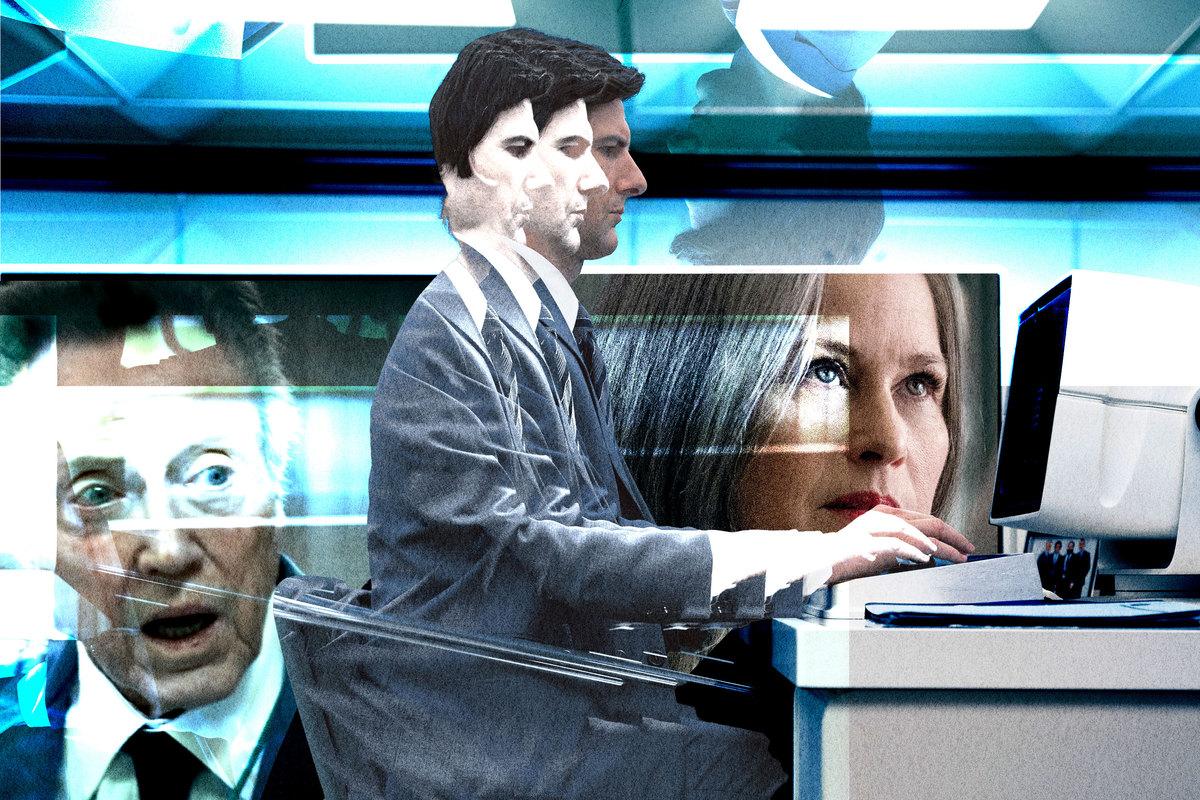At 3:04 a.m. on May 24, 2010, Dan Erickson logged on to Facebook and updated his status with nine simple words: “Dear Lost. It was perfect. Thank you. Love, Dan.”
Lost had aired its series finale earlier that night, bringing to a close six seasons of theorizing and speculation with an ending that was emotionally satisfying but also illogical, clunky, and intellectually disappointing. (At least, according to some fans and critics.) At the time, Erickson was a college student studying creative writing and dreaming of a career in Hollywood. Now, 15 years later, he’s the creator of his own hit twisty science-fiction show, and as Severance prepares to kick off its second season on Apple TV+, Erickson is painfully aware of the many pitfalls in front of him—especially the ones that Lost failed to avoid.
“Asking intriguing questions is the easy part,” he says. “Most anyone could do that. It’s much harder to provide an answer that hits that incredibly small sweet spot of telling just enough that people feel satisfied and also not taking the magic out of it by overexplaining it to death.”
Severance has already asked a lot of intriguing questions. The very premise of the show, in which a fictional corporation called Lumon surgically splits its employees’ memories so that their “innie” work persona has no knowledge of their “outie” home life, and vice versa, is a bizarre mystery begging to be solved. Beyond that, there’s the question of what these “severed” employees even do at work (their job seems to consist of clicking random numbers on retro-futuristic computer terminals), and, of course, there’s Lumon’s mysterious goat experiment (more on that later).
Severance’s many mysteries helped propel the show to success when it premiered in February 2022. Back then, there were no expectations. Three years later, that’s changed, and Erickson is feeling way more pressure this time around.
“After people saw the show and they liked it, I became possessed of this notion that, ‘Oh, God, what have I done? I’ve randomly struck gold here through some great cosmic accident, and now I’m going to be revealed for the utter fraud that I am when I have no idea how to replicate it,’” he says.
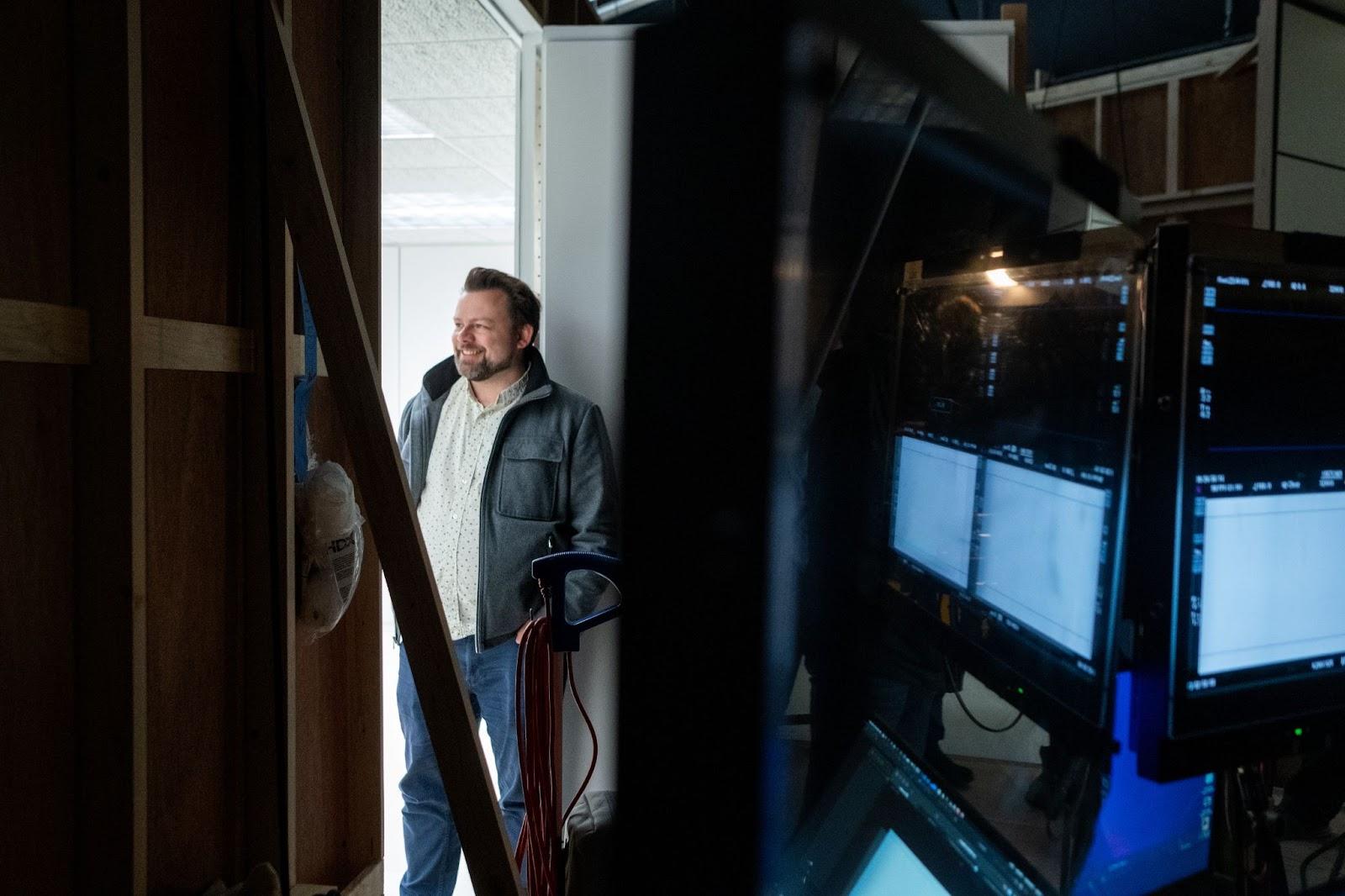
“Season 1 was an experiment that we were living with on our own,” adds Ben Stiller, who produces Severance and also directs many of its episodes (six in Season 1, five in Season 2). “There was no test audience. There was no anything. Season 2 is really an opposite experience of knowing there was an audience out there waiting for it and having expectations.”
So yes, there is a ton of pressure for the series to deliver; the first season garnered 14 Emmy nominations, including one for Outstanding Drama Series. But if you talk to Erickson (who serves as showrunner), his star director, and his adoring cast, one thing becomes undeniably clear: This is the show he was born to make. It’s the one he’s been building toward with every dull office job he was too good for and every forgotten writing gig that never made it onto his IMDb page. It lived in his head for years before anyone else gave it a second look, and it seeped into other projects along the way.
If anyone can keep Severance going and eventually bring it to a satisfying conclusion, it’s probably Erickson. But pulling that off will take everything he’s got—and a lot of skills he’s admittedly still learning.
Erickson grew up in Olympia, Washington. After high school, he moved to Los Angeles to attend Loyola Marymount University and study film production, but he soon felt overwhelmed by the sheer number of skills needed to make a movie.
“I kept thinking: ‘Man, I just want to write the stories and let somebody else deal with all of this,’” he recalls.
So he transferred to Western Washington University to study creative writing. He also took advantage of the school’s student-run theater program and produced an original play called Convention, which was born out of his fear of becoming a corporate drone as soon as he graduated from college. (The play follows a group of coworkers who come to realize they’ve never left their office.) Erickson calls Convention “a grandfather or great-grandfather of Severance.” Like the show, it was a “weird, dark, kind of surreal comedy, drama, thriller thing” set in an office.
After graduating, Erickson went to grad school for dramatic writing at the NYU Tisch School of the Arts (his application included the script for Convention), where, to his surprise, he found himself gravitating toward television over film. This was 2010, and the golden age of TV was in full swing. Serious dramas like Breaking Bad and Mad Men, along with sitcoms like 30 Rock and Parks and Rec, inspired Erickson to rethink his filmmaking goals and consider writing for the small screen.
After graduating from NYU, Erickson moved back to Los Angeles but struggled to break into the industry. He wrote the pilot for Severance in 2012 while sitting at his desk at a door factory (a job that’s referenced early on in Season 2). He then spent years tinkering with the script while sending it around town, but he struggled to get anyone’s attention.
After people saw the show and they liked it, I became possessed of this notion that, “Oh, God, what have I done? I’ve randomly struck gold here through some great cosmic accident, and now I’m going to be revealed for the utter fraud that I am when I have no idea how to replicate it.”Dan Erickson
“It was frustrating that I couldn’t get traction with it,” Erickson says, “but at the same time, it ended up being a real benefit. I was able to sit with the show for five years by myself before I had to put my money where my mouth was.” Once people finally did start paying attention, all that extra polishing paid off. “I probably came off a little more competent than I actually am because I walked into some of these pitches and was able to map out this pretty ornate world.”
Patricia Arquette, who plays a nefarious middle manager at Lumon named Harmony Cobel, describes Severance as an entire universe living inside Erickson’s head.
“He’s dreamed this in so many directions,” she says. “It’s almost like a dollhouse he’s been playing with in his mind for a long time.”
Or, as Erickson puts it: “I had been trying to push the boulder up the hill for so long that I just knew how it worked.”
In 2016, Severance earned a spot on the Bloodlist (a yearly ranking of the best unproduced horror scripts that also gave us Bird Box and Don’t Worry Darling), and Erickson submitted the script to Ben Stiller’s production company, Red Hour Productions. Suddenly, after five years pushing that boulder up the hill, Severance started to gain traction. Things moved quickly from there.
“We sat down together, and immediately I felt such a connection with him just in terms of his sensibility,” Stiller says of Erickson. “He’s a genius in terms of his ideas and his writing style and his tone.”
The cast of Severance seems to agree.
“Dan thinks big, and he has an expansive mind,” Adam Scott tells me.
“He’s a very talented guy,” John Turturro says.
“He has a lot of access to awe,” Britt Lower adds.
Erickson may be a genius—or, at least, a very talented writer—but he still had a lot to learn about making TV. Stiller points to one early issue that came up: reusing locations. Because Erickson wasn’t thinking like a showrunner, he’d write scenes that required a new set to be built and then used only once. That may not be good for a show’s budget, but Stiller thinks it makes for more interesting television.
“I feel like his not knowing all the ins and outs of what you can or can’t do has been an asset. It doesn’t constrict him the way it does for some other showrunners,” Stiller says. “He’s always been pushing the bounds in terms of his ideas, and that’s been a real gift for the show.”
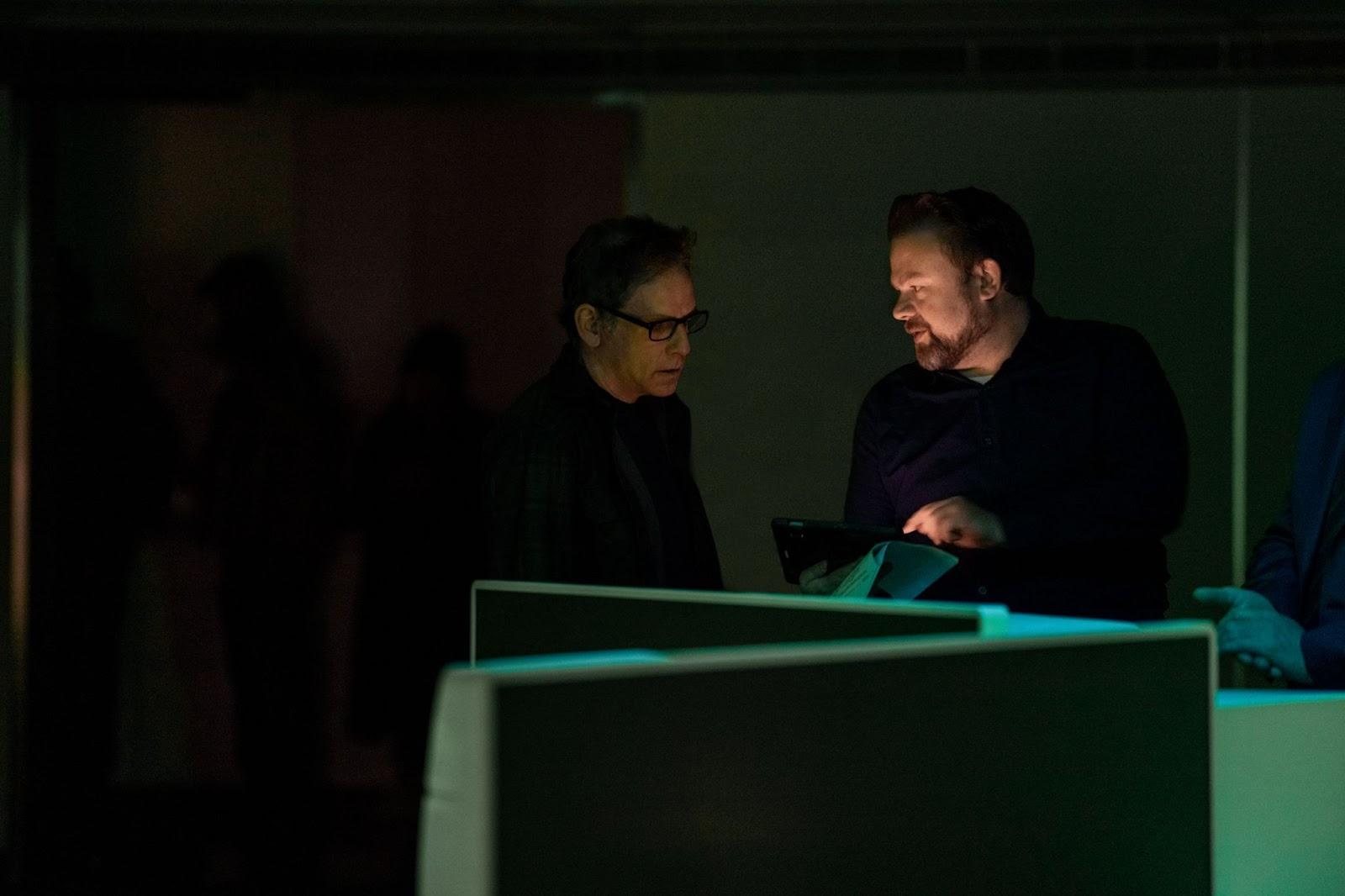
In a 1960 interview, Orson Welles credited the making of Citizen Kane to “Ignorance. Ignorance. Sheer ignorance,” explaining that “I didn’t know that there were things you couldn’t do, so anything I could think up in my dreams, I attempted to photograph.”
You can make a similar case for Severance, and Erickson doesn’t shy away from the comparison.
“Not to be a total monster and compare myself to Orson Welles, but I do think there’s something to that,” he says. “Because the more you do this and the more educated you become on how this works, you can actually become more afraid to break the rules.”
Another thing that sets Erickson apart from your average showrunner is his incredible attention to detail. Arquette recalls a moment from filming Season 1 when she picked up a prop book (a self-help tome titled The You You Are that exists in the Severance universe) assuming that the pages would be blank, only to find it full of words.
“I think Dan wrote 30 pages for that book,” she says.
Turturro had a similar experience the first time they met. After they discussed the show over dinner, Erickson followed up with a detailed written backstory for Turturro’s character. “He actually sent it to me; he typed it all up and everything.”
Arquette adds: “Whenever I have a specific question, he’ll go, ‘Let me think about that.’ And when he comes back, it’s so much more layered and so much richer and so much deeper than I imagined.”
It’s been a long wait for Severance Season 2—even in our current streaming era, when the idea that a new season will come out every year feels charmingly antiquated—and in that time, plenty of fans began to worry that something had gone wrong behind the scenes. Then came a scathing report from Puck saying that Erickson and his co-showrunner, Mark Friedman, had “ended up hating each other” and that production had fallen apart as a result. (The report was authored by Matthew Belloni, who hosts The Town for The Ringer.) Within a day, both The A.V. Club and The Daily Beast had disputed that report, citing sources close to the show, while Stiller took to X (then Twitter) to add: “We’re on the same really slow schedule we’ve always been on.” (In Season 2, Friedman is credited as a cowriter on one episode, Episode 7.)
When I bring these rumors up, Erickson affirms that there was nothing to them.
“To be totally honest, I was really surprised to read that,” he says. “Mark called me the day that came out, and we kind of had a laugh about it because it didn’t feel true to the experience we had. I have a really warm relationship with everybody who has worked on the show, and especially people who helped steward me into this role and helped to keep the wheels moving on this massive machine. I like all of those guys, and I’ve always liked all those guys.”
Erickson still doesn’t know where that specific rumor came from, but he thinks he understands what caused it. After all, when a hit show disappears for three years, it’s only natural that people start looking for someone to blame. He also points out that production on Severance Season 2 took about as long as that for Season 1. “The only difference being that in Season 1 nobody was waiting for us. Nobody knew what the hell Severance was, so nobody was looking to point a finger.”
(When I ask whether Season 3 will arrive a little sooner, Erickson offers a soft yes. “As you go along, you start to identify those things that you could do a little more economically,” he says. “Some of that is in the writing and some of that is in the production, so we’re always trying to tighten it.”)
Now that Season 2 is finally here, Erickson is free to talk about it in public. Sort of. There’s a long list of spoilers that Apple’s PR team has forbidden us from mentioning in this piece. One thing we can discuss, however, is the elevated role of Tramell Tillman, who plays innie supervisor Seth Milchick and who became a fan favorite in Season 1 thanks to his deadpan delivery and killer dance moves.
Season 1 was an experiment that we were living with on our own. There was no test audience. There was no anything. Season 2 is really an opposite experience of knowing there was an audience out there waiting for it and having expectations.Ben Stiller
According to Erickson, most of what makes the character great comes directly from Tillman. “In the original pilot, he’s there and he’s funny, but that character did not exist until Tramell gave him life.” It wasn’t until a few days into production that Erickson realized what he had lucked into. “I remember leaning over to Ben [Stiller] and being like, ‘Holy shit, I’ve never seen a character like this.’ The work that Tramell is doing is just on a totally different level.”
So when Erickson started writing Season 2, he was determined to give Tillman more screen time while also exploring the character of Milchick, whom Erickson describes as “wearing about 10 different masks.” Severance is careful not to remove too many of those masks. Instead, the show uses Milchick’s status as a Black man to expose an ugly and bizarre new side of Lumon—and corporate America in general.
At one point in Season 2, Milchick is presented with a gift from the company’s board: “inclusively re-canonicalized” paintings of Lumon’s founder, Kier Eagan, portrayed as a Black man. (Even for Severance, it’s a weird scene.)
“There are a lot of racial elements that are introduced in this season,” Tillman says. “ I think it really speaks to the genius of Dan, his willingness to try different things and to really take risks.”
Tillman adds that Erickson and Stiller took the time to seek out the advice of experts and the cast’s Black actors before tackling the subject, and he credits the creative duo with portraying Milchick as a complex and flawed human, even as they pushed the character to uncomfortable new limits.
“These are not one-dimensional characters, not magical Negroes, if you will, but actually real human beings in a real corporate structure that people that look like them would endure,” Tillman says.
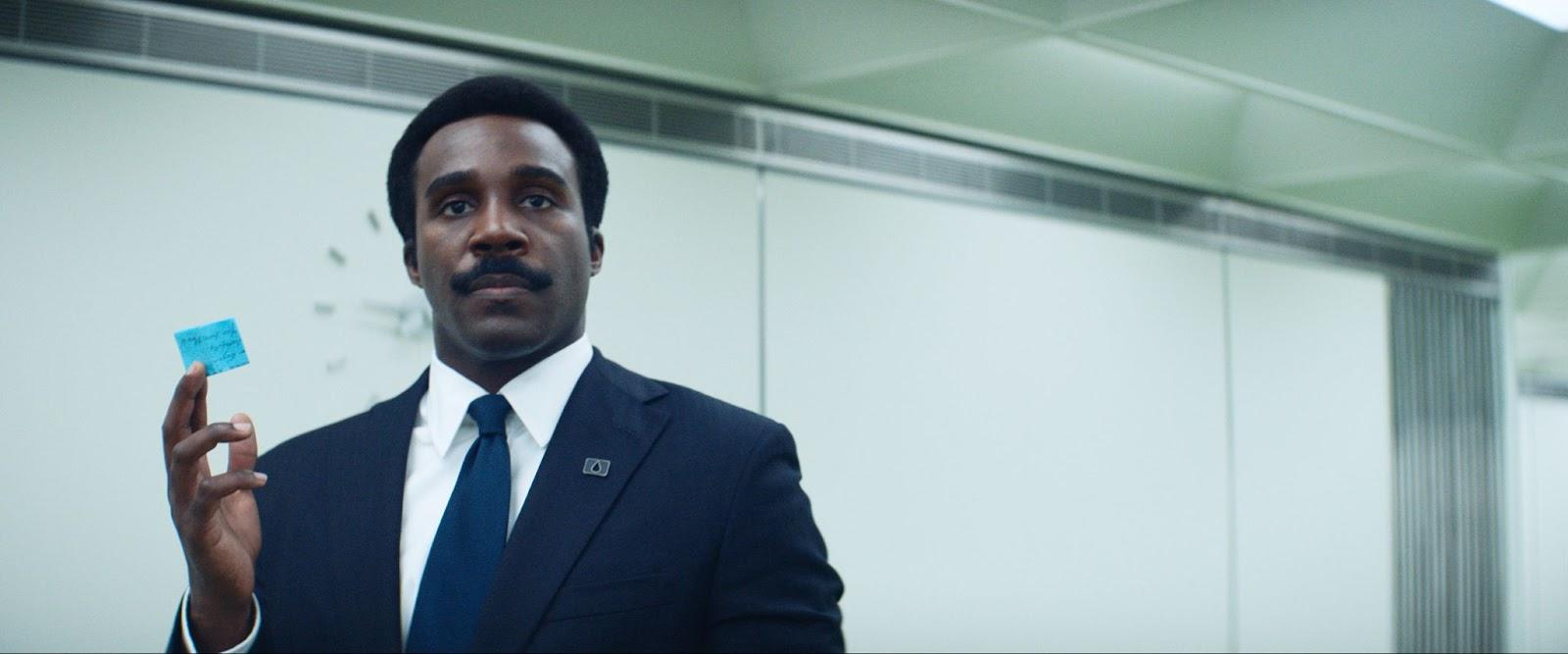
Another major theme in Severance Season 2 is love, with pretty much all of the main innies getting a romantic plotline this time around. Erickson didn’t specifically set out to give each character a love story, but he says that it feels like a natural extension of what happened in Season 1.
He likes to think of the innies as children without enough memories or life experience to have fully developed personalities. Season 1 ends with “this first act of rebellion and reclaiming the self” as the innies stage a temporary escape into the outside world. This sets up Season 2 as a story of adolescence, as the innies “no longer exist just to serve the outies or just to serve the company.”
“They want to be their own people, but they don’t know who the hell they are yet,” Erickson explains. “A big part of that time of your life is things like first love, having a first crush, experiencing sexuality for the first time. That’s such a big part of discovering who you are, which is one of the main themes of the show.”
For Zach Cherry, whose character, Dylan, gets a surprising romantic subplot in Season 2, this is just one more example of how both Erickson and Severance are evolving and growing as the show goes on.
“You can watch the characters change as he notices what’s playing out as we’re filming,” Cherry says. “It’s been a lot of fun to get down to that shorthand and be able to operate on a better wavelength.”
Then again, Erickson is the first to admit that Season 2 faced plenty of challenges, and he’s often felt like an impostor who just happened to make a hit TV show by accident. He credits Chris Black, a longtime producer who worked with him on the first season, for having his back when things got tough. “Every time I would come to him, when I was in the throes of anxiety, he would always get this knowing look and say, ‘Yeah. That’s just how it feels.’”
Now that Season 2 is complete, the impostor syndrome has started to recede.
“There is, dare I say, a modicum of confidence,” Erickson says. “If I’m being totally honest, I still feel like there’s a lot that I’m learning, but I’m at a point now where I show up to work and I at least feel like I’m supposed to be there. I at least feel like I can usually be of some help, which is a nice feeling.”
Severance hasn’t officially been renewed for a third season yet, but everyone involved seems to think it’ll happen. Beyond that, however, the future gets murkier. While Apple seems committed to letting Severance go on for as long as it needs to, Erickson already has an end point in mind, even if he isn’t ready to reveal exactly how many seasons he has planned.
“We’re not really saying it yet because it might change, but we know how many [seasons],” Erickson says. “We have the end point and the big structural answers ready in the chamber. And it’s just a matter of how to get there.”
As for those mysterious goats from Season 1 (if you’ve forgotten all about them, Episode 5 revealed a department at Lumon where one employee cares for a room of baby goats, with no further explanation), Erickson promises we’ll get an answer eventually—even if that answer may have changed behind the scenes.
The only difference being that in Season 1 nobody was waiting for us. Nobody knew what the hell Severance was, so nobody was looking to point a finger.Erickson
“I had an idea for it at the time,” he says. “And if I’m being totally honest, that idea is different now. Hopefully that doesn’t give the impression that we’re flying by the seat of our pants, but sometimes you put something down expecting it to pay off one way, and then in crafting the next part of the story, you’re like, ‘I think it would actually be better if it was this.’ The goats are something where the payoff has changed a little bit, but still in the same universe as what we originally conceived.”
Once Severance does come to a (hopefully satisfying) end, what’s next for Erickson? He doesn’t mention any concrete plans, but he does hint that his next project may not be a TV show at all.
“There’s something attractive in the idea of film in that you can tell a story, a contained story with a beginning, middle, end, and then you’re done,” he says. “TV is ongoing. Right now, for example, I’m so excited to show people Season 2, but at the same time, you can’t rest because there’s more to come.”
He references a quote from Sam Catlin, a TV veteran who came on board to help Erickson run the Season 2 writers room: “The way he put it is that TV is like a pie-eating contest. And if you win, the prize is more pie, which is pretty astute. Sometimes, I feel like I’m pretty full of pie.”
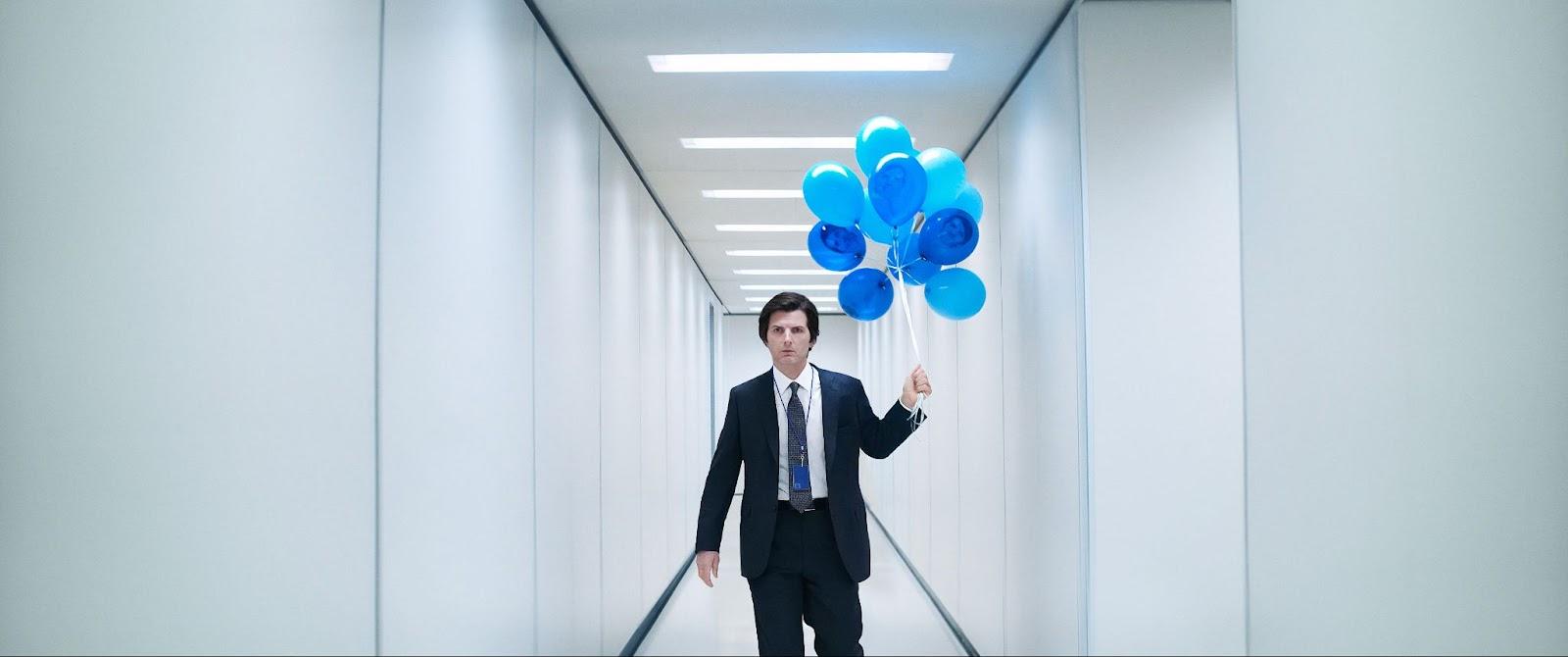
Erickson is also aware that the TV landscape has shifted since the days of Mad Men, Breaking Bad, and the other shows that first inspired him.
“I do think there is a little more focus on quantity these days,” he says. “Streaming changes the game, there’s no doubt about that. But there’s still incredible TV being made. I just finished Shogun, and I was just like: ‘Holy crap. This is not like anything I’ve ever seen before on film or TV.’”
But perhaps we’re getting ahead of ourselves. Before Erickson can move on to his next project, he needs to finish this one. It’s going to take everything he’s learned on the job to flesh out every corner of this universe he’s imagined and bring Severance to a satisfying conclusion.
Thankfully, he’s got a secret weapon. He can learn from the mistakes of one of his favorite TV shows: Lost.
“I can zig instead of zag and tell the story in a way that doesn’t fall into a couple of those same traps,” Erickson says. “A big part of it is planning and having a pretty solid idea of where we’re going so that the things we’re seeding don’t end up being arbitrary.”
“Of course, the show’s not done yet,” he adds. “So history will tell if we are able to do that.”

